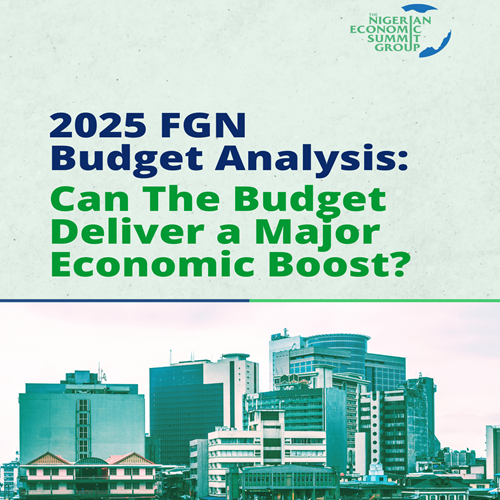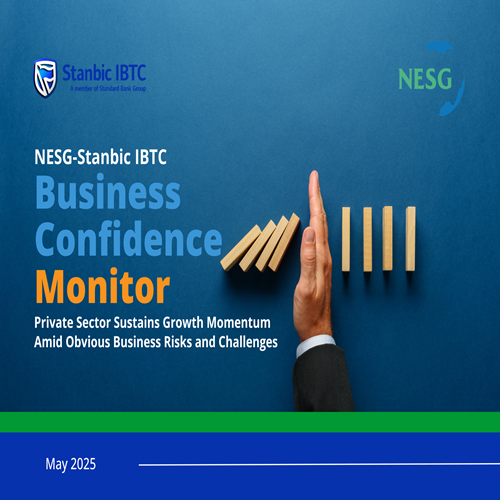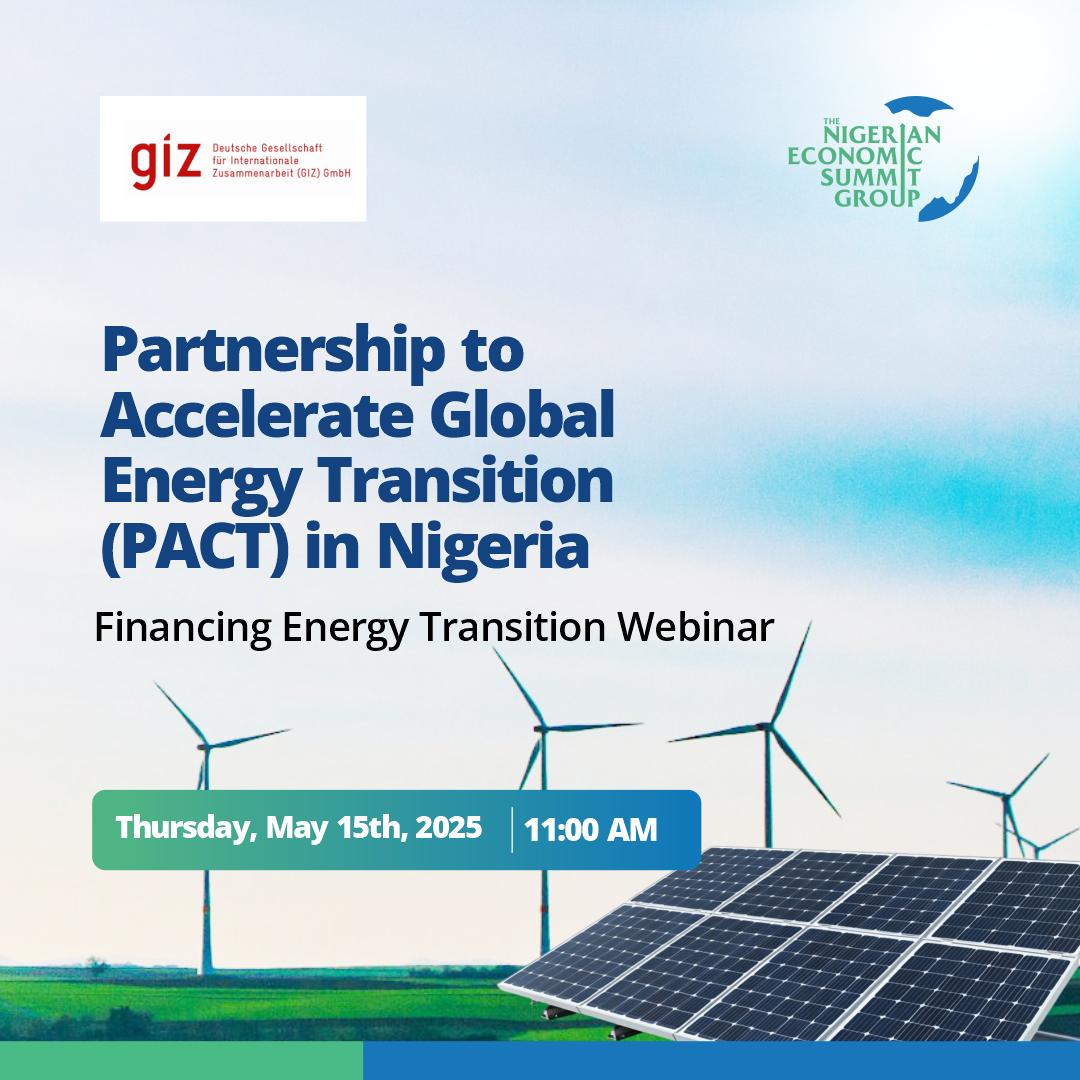Posted Wed, Oct 6, 2021 9:01 AM
Strengthening Academia and Industry Collaboration in Circular Economy

The Sustainability Policy Commission of the Nigerian Economic Summit Group (NESG), in collaboration with the Federal Ministry of Finance, Budget and National Planning on Tuesday 28th of September, 2021, held a pre NES27 event with the theme “Strengthening Academia-Industry Collaboration in Circular Economy and Natural Capital Accounting.”
While welcoming participants to the event, the vice-chairman of the NESG, Mr Niyi Yusuf, said that the COVID-19 pandemic presented an opportunity for Nigeria to embrace a green, fair and just system which will set Nigeria on a path to economic growth and a sustainable future. He revealed that while natural capital is the world’s most important asset, it is presently unsustainable and it was important for Nigeria to set sustainable development priorities that pursue low carbon emissions in order to have a climate-resilient future. Furthermore, Mr Yusuf stated that a circular economy could present a more sustainable model, and there is an urgent need to create plans to achieve a transition, especially drawing from the strength of the triple helix roundtable, a collaboration between Academia, Industry and Government.
“We hope that today’s public-private dialogue will help in driving advocacy effort. The conversations will help promote engagement of stakeholders and will lead to greater uptake in citadels of learnings and industries. A sustained effort from the private sector, academia and active collaboration of the government will help to embrace circular economy in universities, industries and the private sector,” Mr Yusuf stated.
Dr Carl Cruz, Managing Director, Unilever West Africa, in his keynote address, stated that the goal of ecologic utilisation could be achieved with effective collaboration between all stakeholders. Dr Cruz revealed that Nigeria is currently running an ecological deficit of -0.1, indicating that the country is overconsuming its ecological resources. He revealed that humans are presently exploiting natural resources, creating ecological damage that results in social and economic liabilities such as flooding and drought, resulting in starvation, conflicts, and displacements.
“It is imperative for countries to commit to protecting the ecosystem by creating a strategy to manage resources better. By regenerating natural systems, we can create a circular economy. This economic model seeks to stop finite resource consumption while generating growth, creating jobs and reducing environmental impact,” Dr Cruz stated. He also mentioned the importance of collaboration between industry players, academia and government to create additional revenue streams, enhance competitiveness between customers and improve supplier relationships.
During the panel session, Prof. Lawrence Ezemonye, Vice-Chancellor Igbinedion University, said that waste is responsible for the advent of different diseases while noting that the adoption of a circular economy which involves the recovery of waste and giving value to waste will change the linear and economic nature of humans by ensuring that precious metals are recovered and manufactured into new products while helping to create a zero-waste scenario.
Professor Michael Faborode, Member National Universities Commission (NUC) Strategy Advisory Committee, said that the NUC curriculum had been improved upon to include critical and analytical thinking, sustainable development and entrepreneurship, especially in engineering and agriculture. He noted that these improvements would particularly help improve knowledge of the circular economy, which will be beneficial to Nigeria.
Prof. (Mrs.) Tanu Jindal, in her presentation, said that the circular economy employs reuse, sharing, repair, refurbishment, remanufacturing and recycling to create a closed-loop system that minimises the use of resource inputs and the creation of waste, pollution and carbon emissions.
Mikko Rahtola, Circular economy expert, Lab University of Applied Science, Poland, reiterated that the best way to go is to promote ecoprenuership and entrepreneurship initiatives that tend to address environmental, economic and social problems in contemporary Nigerian societies.
Dr Nnaemeka Chukwuone, Director, research and environmental policy research centre, revealed that countries that adopt the circular economy aim to keep products, materials, equipment, and infrastructure in use for longer, thus improving productivity resources. He stated that circular development is directly linked to the circular economy and aims to build a sustainable society based on recyclable and renewable resources, to protect society from waste and to be able to form a model that doesn’t consider resources as infinite.
In his closing remarks, the CEO of the NESG, Mr.’Laoye Jaiyeola, said that the circular economy is a framework of three principles, driven by design: Eliminate waste and pollution, keep products and materials in use and regenerate natural systems. It is based increasingly on renewable energy and materials, and it is accelerated by digital innovation and that the NESG remains committed to helping Nigeria adopt a circular economy.
Find a blog post
Latest Releases

2025 FGN Budget Analysis: Can Th .. Read
1 week ago

NESG Stanbic IBTC Business Confi .. Read
1 day ago

Engagement Towards a Successful .. Read
5 days from now
 English
English Français
Français Yorùbá
Yorùbá Igbo
Igbo Harshen Hausa
Harshen Hausa